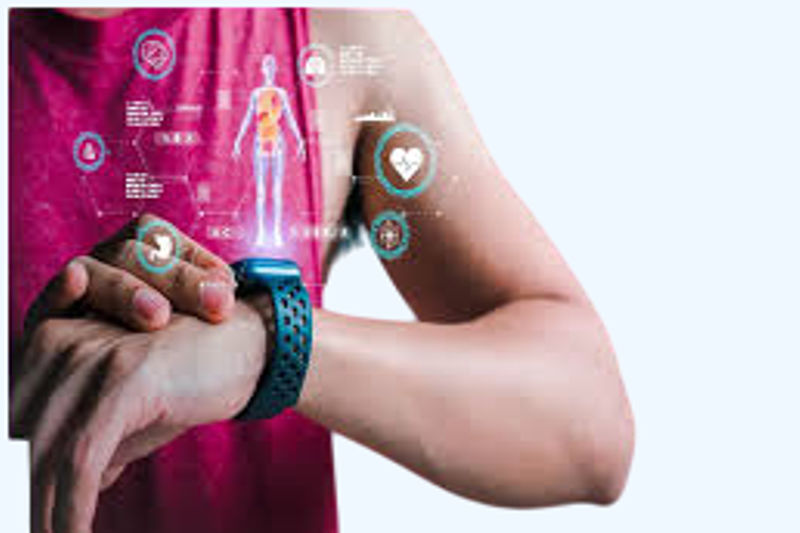In today’s fast paced world, women often juggle multiple roles—career, family, and personal wellbeing—leaving little time for regular health checkups. Yet, preventive care is crucial for early detection of conditions like breast cancer, cervical cancer, osteoporosis, and heart disease, which disproportionately affect women.
Enter AI driven preventive checkups, a revolutionary approach that leverages artificial intelligence to make healthcare more accessible, personalized, and efficient. From smart symptom trackers to AI powered diagnostics, technology is transforming how women monitor their health.
But how exactly does AI enhance women’s preventive care? And what are the real world benefits? In this article, we’ll explore:
✔ Key AI powered tools for early disease detection
✔ The future of personalized, data driven healthcare
The State of Women’s Health: Why Prevention Matters
At various periods of life, women encounter particular health challenges:
Reproductive Health: PCOS, endometriosis, and fertility issues.
Cancer Risks: 1 in 8 women will develop breast cancer in their lifetime.
Mental Health: Higher rates of anxiety and depression than men.
Despite these risks, many women skip regular checkups due to:
Time constraints (busy schedules)
High costs of medical tests
Lack of awareness about early symptoms
This is where AI driven healthcare bridges the gap.
How AI is Transforming Women’s Preventive Care
1. Smart Symptom Checkers & Chatbots
AI powered apps like Ada Health and K Health analyze symptoms and provide personalized risk assessments.
How it helps women:
Identifies potential issues (e.g., irregular periods, hormonal imbalances).
Recommends when to see a doctor.
Reduces unnecessary clinic visits.
Example: A woman experiencing pelvic pain can input symptoms into an AI chatbot, which may flag endometriosis as a possibility and suggest next steps.
2. AI Enhanced Imaging for Early Cancer Detection
Pap smears and mammograms can save lives, but AI increases accuracy:
Google’s DeepMind detects breast cancer in mammograms with 94% accuracy (vs. 88% for human radiologists).
AI powered ultrasounds help diagnose ovarian cysts and fibroids faster.
Why this matters:
Earlier detection = higher survival rates.
Reduces false positives/negatives in screenings.
3. Wearables & Hormonal Tracking
Devices like Apple Watch and Oura Ring track:
✔ Heart rate variability (stress levels)
✔ Sleep patterns (linked to hormonal health)
✔ Menstrual cycle irregularities
AI apps like Flo and Clue predict ovulation, fertility windows, and even PCOS risks by analyzing cycle data.
4. Predictive Analytics for Heart Disease
Women’s heart disease symptoms, such as fatigue and nausea, are frequently overlooked. AI helps by:
Analyzing ECG data from smartwatches.
Flagging early signs of arrhythmia or hypertension.
Example: A study found AI could predict heart attacks in women 6 months in advance using health records.
5. Mental Wellness with Virtual Health Assistants
AI therapy bots like Woebot and Wysa provide:
Cognitive Behavioral Therapy (CBT) techniques.
Anxiety & depression tracking.
24/7 mental health support.
Real World Success Stories
Case Study 1: AI Detects Breast Cancer Earlier
A 2023 study in Nature showed that an AI algorithm outperformed radiologists in spotting breast cancer in mammograms, particularly in women with dense breast tissue (who are harder to diagnose).
Case Study 2: Fertility Prediction with AI
Startups like Ava use AI to track basal body temperature, sleep, and heart rate to predict ovulation with 89% accuracy, helping women with family planning.
Case Study 3: Reducing Maternal Mortality
In India, an AIpowered tool called ARMMAN sends SMS alerts to pregnant women about prenatal care, reducing complications by 30%.
Challenges & Ethical Considerations
While AI offers huge potential, there are concerns:
⚠ Data Privacy: Who owns women’s health data?
⚠ Algorithm Bias: Most medical AI is trained on male dominated datasets, leading to misdiagnoses in women.
⚠ Accessibility: Will low income women benefit, or is this just for the wealthy?
Solutions:
Stricter regulations on health data usage.
More diverse datasets in AI training.
Government/insurance coverage for AI health tools.
AI’s Potential Impact on Women’s Health
Soon, we may see:
🔮 At home AI cervical cancer tests (via smartphone apps).
🔮 Personalized AI nutritionists for hormonal balance.
🔮 AI powered menopause management tools.
How Women Can Start Using AI for Preventive Care Today
1. Try a symptom checker app (e.g., Ada, K Health).
2. Use a wearable (Apple Watch, Oura Ring) to track vitals.
3. Explore AI fertility trackers (Flo, Clue, Ava).
4. Ask your doctor about AI enhanced screenings (mammograms, ECGs).
Final Thoughts: Is AI the Future of Women’s Healthcare?
Of course. Preventive examinations powered by AI enable women to take charge of their health by:
✅ Earlier disease detection
✅ Personalized insights
✅ 24/7 access to care
Even while there are still obstacles to overcome, there is no denying the potential to save lives and enhance wellness.
Key Takeaways:
✔ AI improves early detection of breast cancer, PCOS, and heart disease.
✔ The future holds even more personalized AI health tools.
Healthcare is now more accessible because to wearables and chatbots.
✔ Ethical issues (bias, data privacy) need to be addressed.


